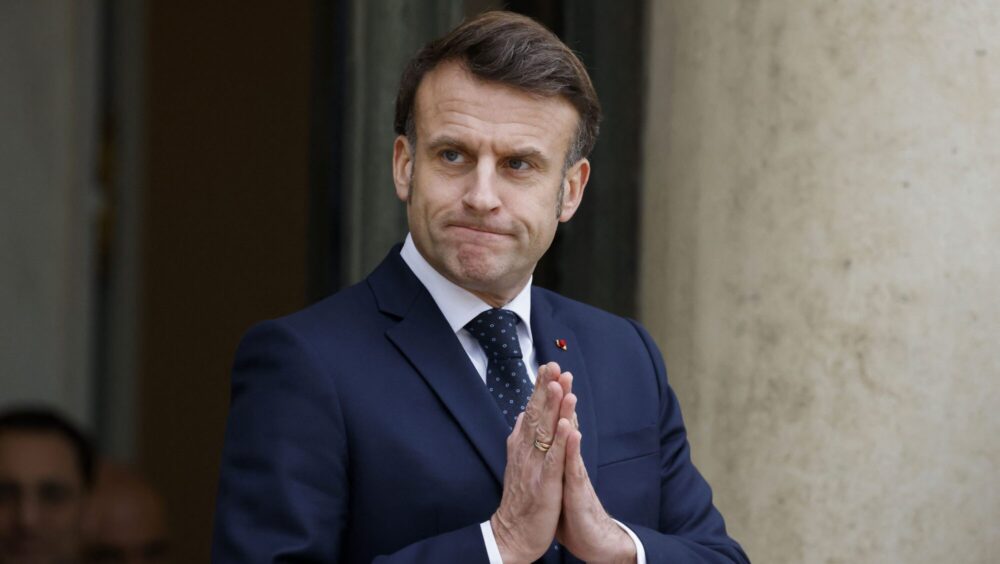
France’s President Emmanuel Macron
Ludovic MARIN / AFP
Talks in Paris this week saw European leaders—those from France, the UK, Poland, Germany, Italy and Spain being key among them—discuss effective blueprints for an alternative to NATO, without the presence of Donald Trump’s United States.
The group also sidelined some European Union members, including Hungary and Slovakia, in a quiet acknowledgement of the fact the divided Brussels bloc is no good at responding to times of crisis. NATO member Turkey was another exclusion from the table.
It is hard work to establish what the ‘crisis response unit,’ as it has been dubbed, hopes to achieve, beyond the creation of statesman-like international soundbites that could—but most likely won’t—distract frustrated voters back home.
Even talks on sending troops to Ukraine have totally failed to garner any semblance of unity, and would ultimately rely on backing from the U.S.—as if to prove the futility of forming a new America-alternative alliance—which Trump has refused to countenance.
Indeed, the very notion that these leaders alone have what it takes to resolve international crises is about as realistic as UK prime minister Keir Starmer’s current delusions. He claims that the British Army is in a fit state to put boots on the ground in Ukraine, with or without an imaginary U.S. ‘backstop.’ (Those who have even glanced at any assessment of the UK armed forces over at least the past two decades will know it is not.)
The group, brought together by French president Emmanuel Macron, said it was unacceptable for America and Russia to negotiate the end of the war in Ukraine over Europe’s heads, and—less unreasonably—stressed that there should also be some Ukrainian involvement in the talks.
Brussels think tanker Luuk van Middelaar told Politico that “when a crisis hits, you always get formal or informal inner circles.” The problem this Parisian grouping might soon find—if it hasn’t already—is that its existence now is more like that of an outer circle.
